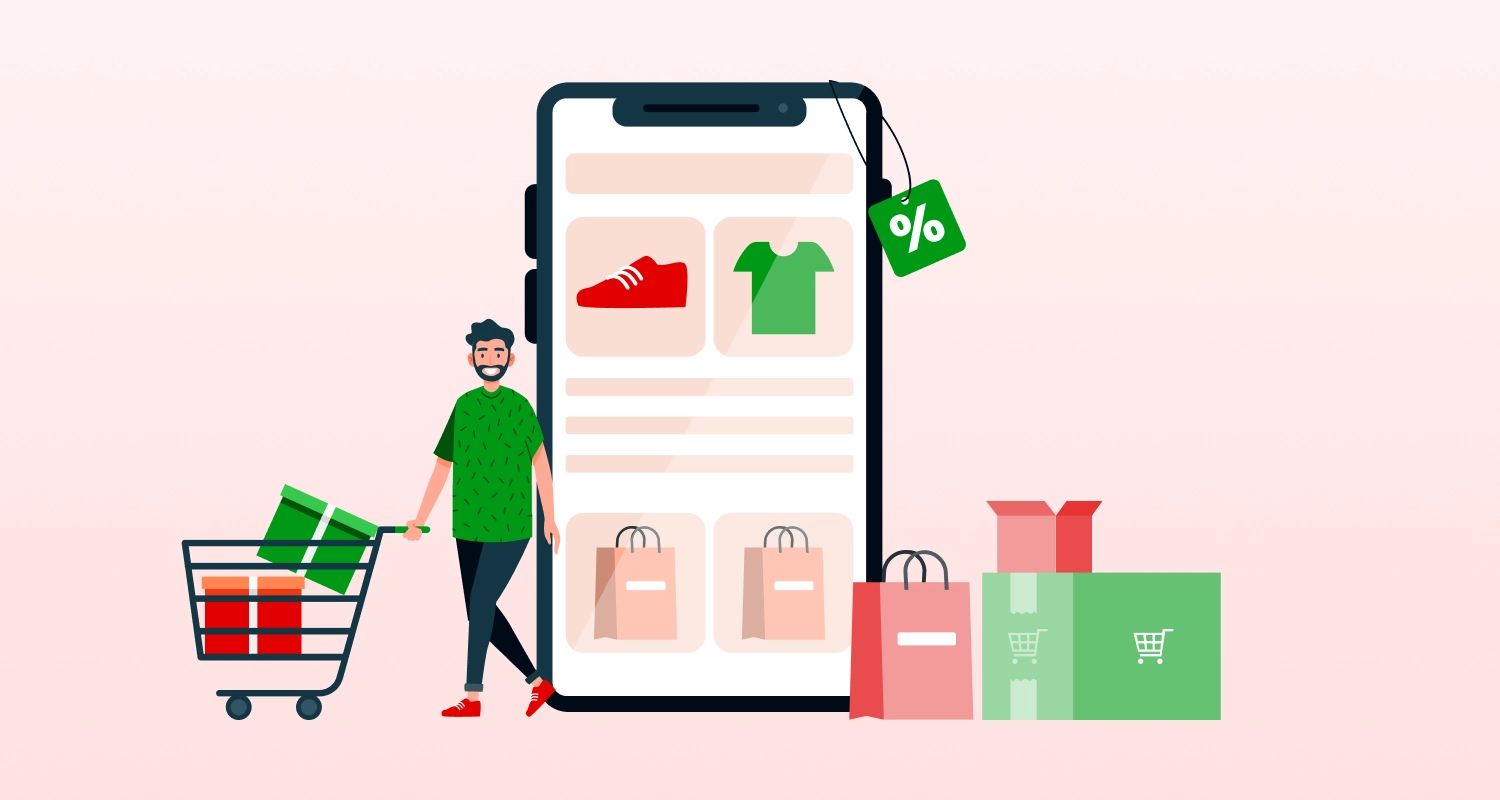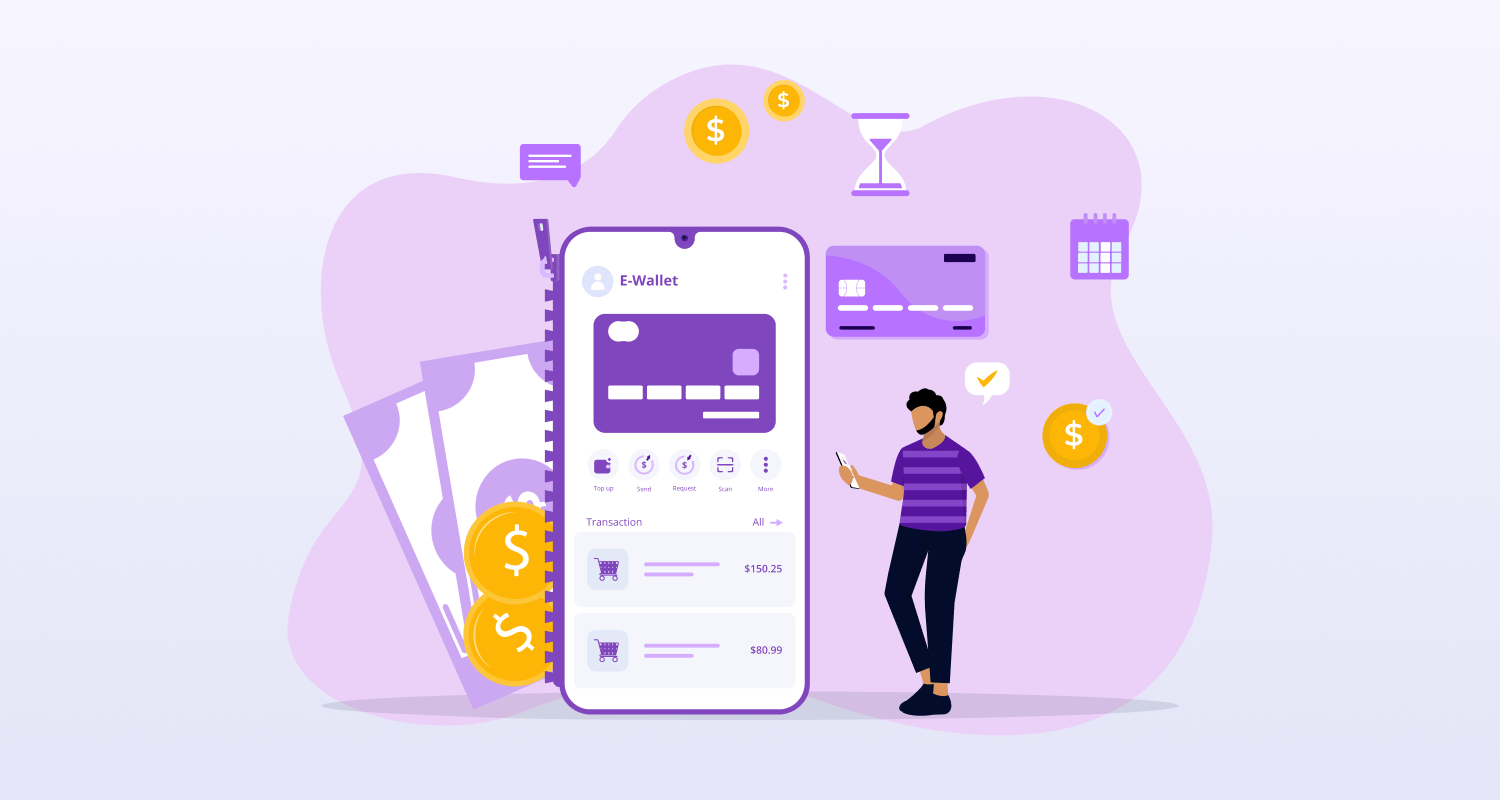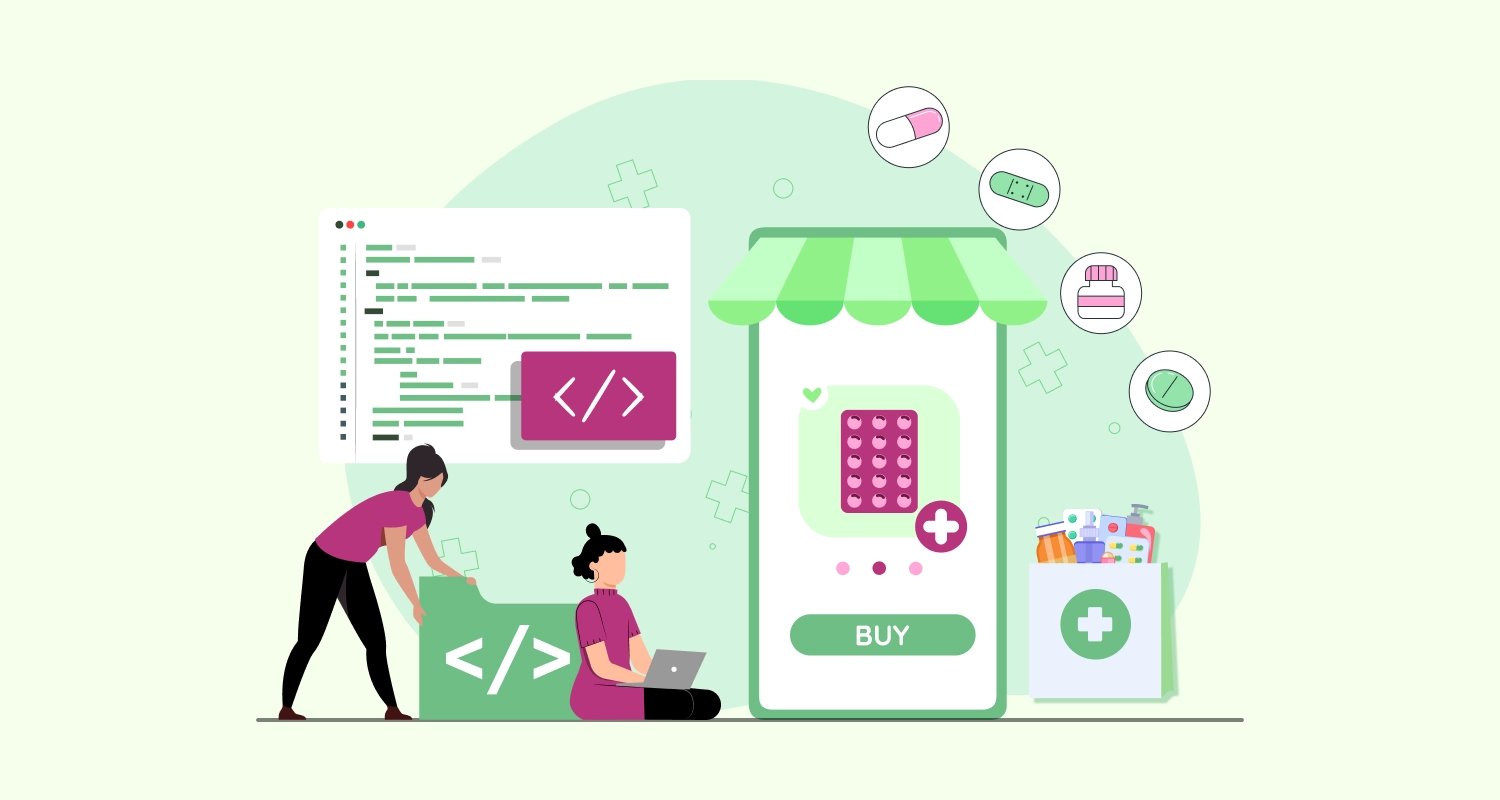Almost all businesses now let customers pay their bills online. Unfortunately, healthcare organizations and practices are notoriously slow to adopt consumer-focused technologies.
Technological advancements in the medical and healthcare sector have accelerated in recent years. Hospitals, clinics, and other healthcare institutions may now provide patients with superior treatment because of the proliferation of digital healthcare technologies.
Since the epidemic, there has been a nearly 38-fold rise in the use of telehealth services. Digital healthcare software solutions have allowed doctors to catch potentially fatal illnesses early, practice safer medicine, and work together on complex medical cases.
From a purely economic point of view, digital payment for healthcare systems enables its customers to increase their profits dramatically, which fuels their expansion.
If you’re still not convinced that your business has to transition to digital, consider the following benefits of digital payment for healthcare business.
Top Benefits of Implementing a Digital Healthcare Solution in Your Business
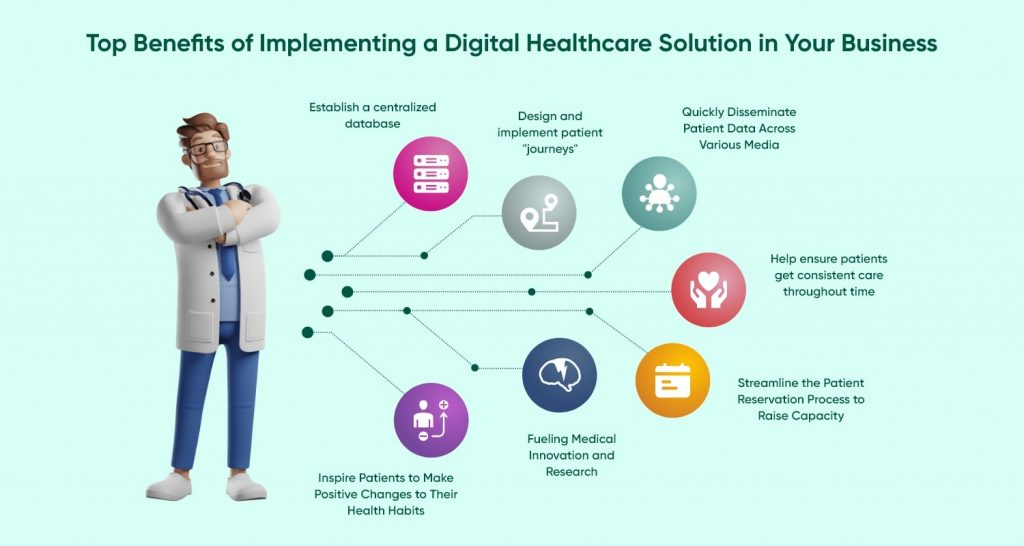
1) Establish a centralized database for patient records
Having all relevant patient data in one place is one of the most apparent advantages of using digital medical healthcare software. The details documented in a patient’s chart, medical bulletin, medical history, physicians’ orders, and progress reports are vital to the quality of care the patient receives and the final result of their medical condition.
Patient data input is time-consuming and error-prone when done manually, both of which are frequent issues for startups. Paper documents take up space and need to be maintained. Looking for a patient’s records in the past required time-consuming manual searches through filing cabinets.
Logging and organizing patient data is simplified, reducing mistakes when using a digital healthcare system. In this way, getting to the information you need is a breeze. It’s become crucial since all physicians, nurses, therapists, and dietitians involved in a patient’s treatment need prompt and trustworthy access to their medical records.
Because of digital healthcare software, doctors and other medical staff always have instantaneous access to their patients’ records, whether at their desks or on the go. For additional safety, access may be restricted to just those who need it to provide direct care to patients.
2) Design and implement patient-specific “journeys”
To a large extent, the difficulties associated with developing and implementing individualized treatment plans have been alleviated by the widespread use of digital healthcare software solutions, which have facilitated the centralization and accessibility of patient data.
According to research on the systematic provision of healthcare software development services, one of the most promising developments in digital healthcare is the use of standardized consultation templates to develop individual treatment plans for patients.
The use of AI and robots to aid in rehabilitation and recovery is only one of many advantages identified in studies looking at the complete use of digital technology in healthcare.
To better serve their patients, medical professionals need easy access to their patients’ prescriptions, allergies, medical history, and other relevant data to create a customized treatment plan that ensures the best possible experience and makes the desired results almost predictable.
3) Quickly Disseminate Patient Data Across Various Media
Software developed specifically for the healthcare industry may greatly facilitate the transfer of patient data between medical practitioners. This is especially important when dealing with complex situations that need the input of other parties, such as medical experts, or when an EMS or ambulance crew must send appropriate information to ER staff before receiving the patient.
The exchange of medical data no longer necessitates the physical transfer of patient records. Users of a digital healthcare system may send and receive files from any internet-connected device. Users will appreciate how quickly and efficiently they may send files to one another.
4) Help ensure patients get consistent care throughout time
Electronic health records (EHR) are essential to maintaining quality patient care over time. Because of this consolidated patient record, medical professionals can easily monitor the patient’s progress and respond accordingly.
Users can make any required adjustments to the patient’s treatment plan by retrieving and reviewing files, scans, medications, diet plans, and remarks from other doctors.
Improvements in patient care are achieved by more direct collaboration with labs, therapists, and other healthcare team members. In a survey, almost 44% of respondents stated that they pay their medical bills more promptly after receiving electronic or telephone billing reminders.
5) Streamline the Patient Reservation Process to Raise Capacity
A more extensive patient base is essential for every healthcare provider since it increases revenue. Private practice physicians need patients to maintain their relevance, competitiveness, and, most crucially, their ability to function. Making money from patients who show up for appointments is crucial.
Patients will appreciate the ease of use provided by online healthcare scheduling systems. Most healthcare management software packages offer flexible scheduling features that facilitate the development of scheduling applications directed toward patients and other customers.
Patients may see your available appointment times on your work calendar, which can be viewed by the day, week, or month. When an appointment is successfully scheduled, the availability of your time slots is automatically updated in real-time.
Thus, your client may choose an appointment time that works for both of you. Thanks to this function, there will be fewer no-shows and fewer cases of duplicate booking.
6) Fueling Medical Innovation and Research
No matter how inconsequential, a patient’s data will be helpful someday. Recent medical advancements have been powered by information from all across the globe.
Patient data may now be readily acquired, aggregated, confirmed, and used in developing novel pharmaceuticals and treatments thanks to digital healthcare systems and other technology.
With all the patient data collected from various sources, the medical community may be able to find effective treatments for the diseases that afflict humanity.
7) Inspire Patients to Make Positive Changes to Their Health Habits
Waiting for a diagnosis and test results may be stressful and overwhelming for almost all patients. The use of digital healthcare software makes it easier for patients and their healthcare practitioners to have a conversation with few interruptions.
Because of this function, medical professionals may get to know their patients on a deeper level and provide them with more individualized treatment. When you can accomplish this, you can give your patients the confidence they need to make healthy decisions and prepare for a long life.
You may like this : Cost to Build a Mobile App
The Increasing Necessity of Digital Healthcare Payments
Now more than ever, people have the power to make decisions about their health care because of the rise of healthcare consumerism. Patients today have more control over their healthcare thanks to the Internet and healthcare-related smartphone applications providing easy access to a wealth of information and allowing them to tailor their treatment to their needs and preferences.
Physician offices, hospitals, and other healthcare providers would be wise to adopt a digitally driven payments model to boost the speed, efficiency, and dependability of payment processing in light of the rising trend of consumer-directed healthcare. The improved efficiency of revenue management is only one of the many ways this will help healthcare professionals and their patients.

What models can be used from the healthcare digital payment trends?
The use of digital payment for healthcare methods is becoming more frequent in business-to-business and consumer-to-consumer settings. The healthcare industry may benefit from a few models established expressly with this development in mind since they were developed with this growth.
- Immediate settlements (RTP)
Deals may be completed and closed in a flash in the business world by using real-time payments (RTP), often known as instant payments. Completing all transactional data takes a short time, and the transfer of funds takes place almost immediately.
The global market for this type is $13.5 billion, and it’s growing at a pace of 33% each year. If all went according to plan, real-time payment networks would be able to execute transactions at any hour of the day or night, 365 days a year.
- Funds Transfer Via Electronic Means
A financial transaction that involves the transfer of money electronically from one bank account to another is referred to as an EFT. In addition to that, direct deposits are used often.
Employees of the bank are not engaged in the transactions in question. Because the transaction takes place online, there is no need for any physical papers in order to validate the agreement.
Because of its accessibility, simplicity, and straightforwardness, electronic funds transfer (EFT) has surpassed previous ways of transferring money to become the most popular alternative.
Paper checks are becoming more uncommon as a direct consequence of the advantages described above, which are driving the use of electronic funds transfer (EFT), which is short for electronic money transfer.
- Mobile wallets
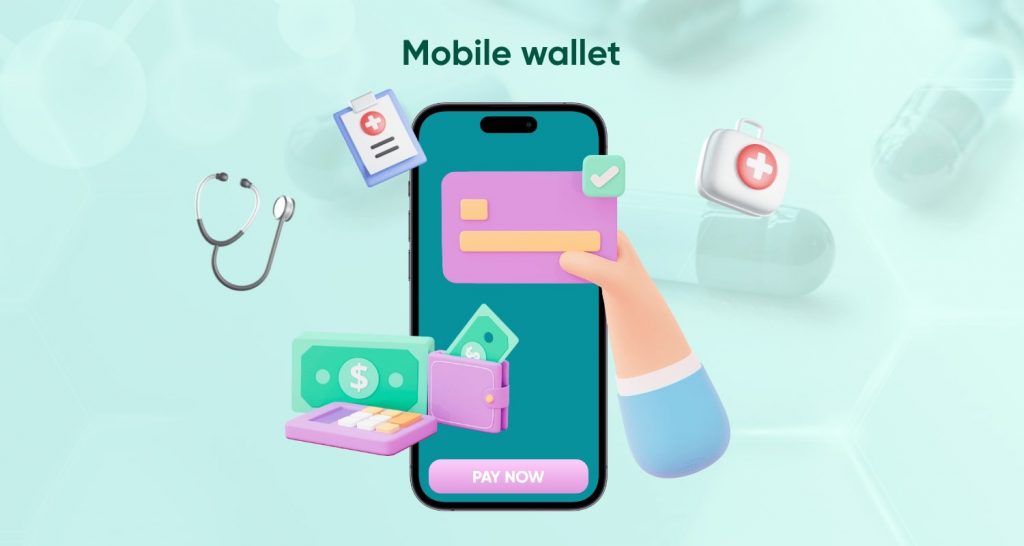
Wallet applications that are installed on mobile devices have the capability to process transactions initiated by a bank account, debit card, or credit card. A mobile wallet that is capable of handling payments will encrypt the information that is stored about such payments.
Using one of these wallets cuts down on the amount of time required to process payments while also removing the risk of fraud. Whether you do your shopping online or in person, using a mobile wallet might help you save money, receive cash back, and earn rewards.
All of these benefits are available regardless of where you do your shopping. Using this form of payment system, a customer may simply “tap and pay,” and they can use the same wallet for both in-store and online transactions. The integration and development of mobile wallets places a high priority on the rapidity, convenience, and security of commercial transactions.
Technologies you can use
The incorporation of digital payment methods into your healthcare business may be accomplished in a variety of ways; you are free to choose the method that is most suitable for running your company.
- Protection Relying on Biological Traits
The term “biometric authentication” refers to a method of verification that makes use of a person’s biological and physical characteristics by making use of various technologies, such as heartbeat analysis, vein mapping, face recognition, iris identification, and fingerprint scanners. This method of verification is known as “using a person’s biological and physical characteristics to authenticate them.”
When it comes to the verification of transactions in the healthcare business, biometric identification may be utilized in combination with mobile apps and many other forms of digital payment for healthcare agents.
For example, behavioral biometric data might potentially be included in payment requests made using smartphones. These extra signals will increase the strength of authentication and help in the identification of fraud by searching for discrepancies in biometric data and payment behavior.
- Interfaces for Application Programming Used by Financial Institutions
Because of application programming interfaces, legacy banks are now able to exchange information and data with one another via the use of applications developed by third parties (APIs).
Through the use of application programming interfaces, or APIs, the platform of a non-financial corporation may be synchronized with the services or goods offered by any other sort of organization (B2B, B2B2C, or BaaS).
- Codes
Customers now have access to a method of payment that is both more streamlined and safe as a result of the broad use of the Europay, Mastercard, and Visa (EMV) technology.
It is a fact that the EMV system makes use of transaction-specific codes. This is a well-known fact. Utilization of these temporary codes is a significant step toward improving the security of bank account safety.
It also has an effect on the management of banks. These codes are increasingly becoming the preferred technique for performing financial transactions, even exceeding the usage of conventional cards.
Read More – Best Healthcare App Development
Conclusion
Accepting digital payment is a worthwhile move for healthcare clinics, despite the fact that change is difficult for businesses of any size to make.
Your patients will appreciate the cutting-edge care you’re providing, and your business will thrive thanks to a more streamlined revenue cycle, more efficiency, and more precise record-keeping if you hire healthcare app developers for your help.





